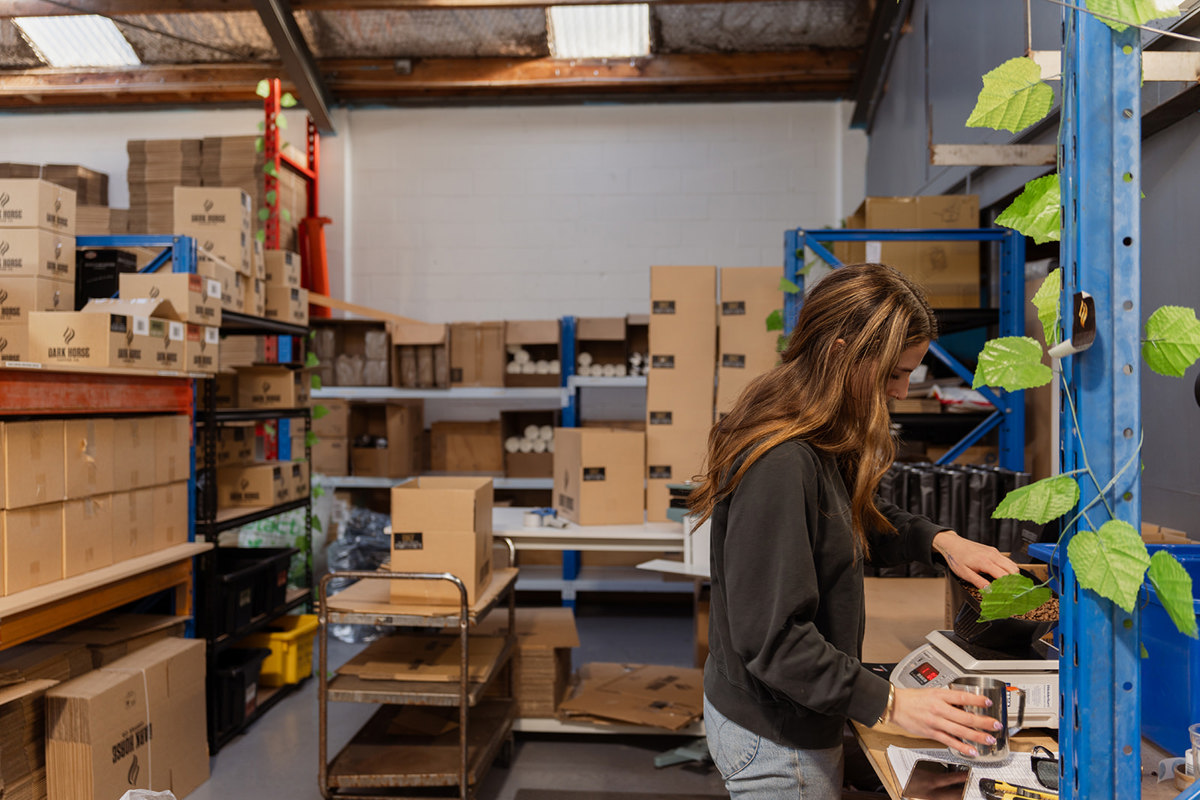Brewing Sustainability, One Cup at a Time
Dark Horse Coffee Co is proving that small sustainability wins add up. From low-emission roasting to recyclable packaging and hybrid vehicles, the Paraparaumu-based business is committed to reducing its footprint. With their ‘Leave Less Hoofprints’ motto, they’re inspiring customers to make eco-friendly choices—one coffee bag at a time.
‘Leave Less Hoofprints’ is the motto splashed across Dark Horse Coffee Co’s black and gold branding, reflecting the award-winning Kāpiti business’ commitment to sustainability.
The artisan coffee brand, influenced by Melbourne’s meticulous café culture, is encouraging customers to embrace environmental responsibility, one step at a time.
“We built our motto around doing the best you can to leave as little waste and emissions behind as possible, without trying to greenwash and mislead people,” explains Dark Horse director Blair Harley, whose roastery in Paraparaumu features an industrial-style Dark Horse Expresso Garden.

“We don’t want to say, ‘Leave No Hoofprints,’ because that's unattainable. You need to celebrate the little sustainability wins, rather than make people feel bad for their mistakes.”
Blair, former national sales manager for Tuatara Brewery, acknowledges it’s impossible to run Dark Horse’s roastery and nationwide wholesaling business without some waste. But the brand strives to minimise its impact.
In 2019, three years after Matthew Payne created the rich and chocolatey Dark Horse blend, the Kāpiti barista and his wife Rachel partnered with Blair and Tuatara Brewery founder Simone Vasta.
Together, they opened Dark Horse roastery, investing in a high-quality roaster that uses eighty percent less emissions than traditional models.
The team also upgraded to hybrid vehicles and began reusing cartons, before moving to soft plastic recyclable packaging for their coffee bags.
“The bags aren’t curbside recyclable, so we have a special bin in the coffee shop, which costs around $600 a year, but we feel we’re onto something special,” says Blair, who was surprised how many locals returned with empty coffee bags, plus other household soft plastics.
“Our coffee bags are magnificent! They have an awesome little zipper and maintain product quality, while helping us leave less hoofprints.”